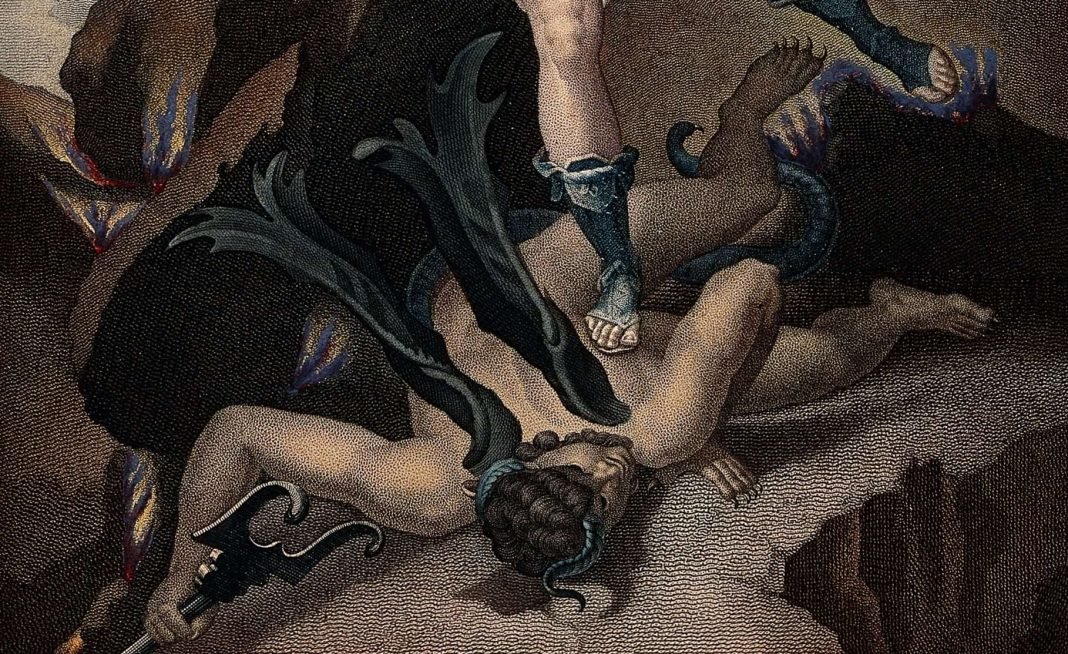Confession
The Sacrament of Penance cuts directly through the devil’s strongest chains because it restores the soul to grace. St. John Paul II said: “The sacrament of Penance is the ordinary way of obtaining forgiveness and the remission of grave sins committed after Baptism.” In confession, the sinner humbles himself before God, echoing the words of St. Augustine: “The confession of evil works is the first beginning of good works.” The devil works hardest to keep people away from this sacrament because he knows what St. John Vianney preached with simplicity and force: “The Lord is more anxious to forgive our sins than a woman is to carry her baby out of a burning building.” Every absolution throws hell into confusion, because it restores light, restores grace, and restores strength for the spiritual battle.
Holy Communion
The Eucharist is strength, protection, and divine intimacy. St. Ignatius of Antioch called it plainly: “The medicine of immortality, the antidote against death.” When we receive Christ, the soul is united to the One before whom demons flee. St. Cyril of Jerusalem taught with clarity: “Do not doubt whether this is true, but take the Savior’s words with faith, for He said: ‘This is My Body.’” Holy Communion draws us into a union that strengthens us for every battle, fulfilling what Pope St. Pius X wrote: “Holy Communion is the shortest and safest way to Heaven.” Approaching the altar with a prepared conscience fills the soul with the presence of Christ Himself—the One who conquers every darkness.
The Virgin Mary
No spiritual weapon terrifies the enemy as much as the Mother of God. St. Louis de Montfort—whose Marian teaching the Church has repeatedly endorsed—wrote plainly: “The devils fear the Blessed Virgin more than God Himself, not because the power of God is not infinitely greater, but because God has given Mary the power to defeat them.” Her intercession is immediate and maternal. At Fatima, she spoke clearly and without confusion: “In the end, my Immaculate Heart will triumph.” Turning to her in prayer, especially through the Rosary, makes the soul untouchable, echoing St. Padre Pio’s constant reminder: “The Rosary is the weapon for these times.” Wherever Mary is sincerely invoked, hell retreats.
St. Joseph
St. Joseph’s authority in spiritual warfare rests on his unique mission as guardian of Jesus and Mary. Pope Leo XIII affirmed this directly in Quamquam Pluries: “Joseph was in his day the lawful and natural guardian, head and defender of the Holy Family.” His protection continues for the Church because the Church is the Body of Christ. St. Teresa of Ávila testified from her own life: “I do not remember ever having asked anything of him that he did not obtain.” His purity, obedience, and silence crush the noise and impurity through which the devil works. Invoking him under his title “Terror of Demons” is not symbolic—it reflects the real spiritual authority he exercises in God’s plan.
The Scapular
The Brown Scapular has been recognized by the Church as a sign of Marian protection and consecration. Pope Pius XII affirmed this devotion with clarity: “The scapular is a sign of consecration to the Immaculate Heart of Mary.” The one who wears it commits himself to Mary’s protection and her way of life. At Fatima, Our Lady herself said to Lucia: “I want all my children to wear the Scapular.” The scapular is powerful not because of superstition, but because it marks the soul as belonging to Mary, and as St. Maximilian Kolbe declared: “Never be afraid of loving the Blessed Virgin too much. You can never love her more than Jesus did.” The soul that belongs to Mary is shielded by her mantle.
Prayer
Prayer keeps the soul awake and guarded. St. Teresa of Ávila said it with perfect clarity: “He who neglects prayer is like a fish out of water.” Prayer draws God’s presence into the heart and forces the devil out. St. John Chrysostom called prayer a weapon without limits: “Prayer is the root, the fountain, the mother of a thousand blessings.” Pope Benedict XVI reminded the Church that prayer is not escape, but strength: “Prayer is the lifeblood of the Christian, without which he cannot survive.” A consistent prayer life—morning, night, and throughout the day—builds an interior fortress that the devil cannot enter.
Humility
Humility destroys pride, and pride is the devil’s native language. St. Augustine explained the spiritual hierarchy of virtues with unmatched clarity: “If you should ask me what are the ways of God, I would tell you that the first is humility, the second is humility, and the third is humility.” Humility opens the soul to grace, while pride closes it. Pope St. Gregory the Great wrote: “Pride makes us lose the blessings we have; humility enables us to gain those we have lost.” The devil cannot imitate humility because it is rooted in truth, and he is the father of lies. The humble soul, admitting its weakness before God, becomes strong beyond measure.
Fasting and Abstinence
Fasting attacks the enemy precisely where he works—disordered desire. Scripture records the teaching of Jesus Himself: “This kind cannot be driven out by anything but prayer and fasting.” (Mark 9:29, RSVCE). St. Basil the Great described its spiritual effect clearly: “Fasting gives wings to prayer.” Pope St. Leo the Great taught the Church with authority: “Fasting gives strength against sin, suppresses evil desires, and heals the wounds of the soul.” When we fast or abstain, we reclaim our freedom from the impulses the devil tries to exploit. Hunger offered for God sharpens the will, clears the mind, and strengthens the heart for spiritual battle.
Make a one-time donation
Make a monthly donation
Make a yearly donation
Choose an amount
Or enter a custom amount
Your contribution is appreciated.
Your contribution is appreciated.
Your contribution is appreciated.
DonateDonate monthlyDonate yearlyDiscover more from Catholicsay
Subscribe to get the latest posts sent to your email.




